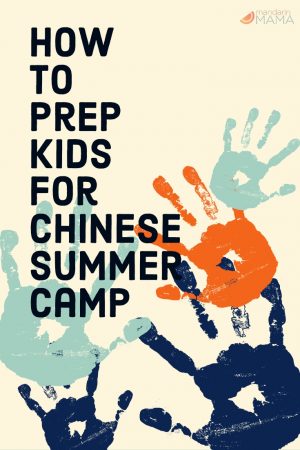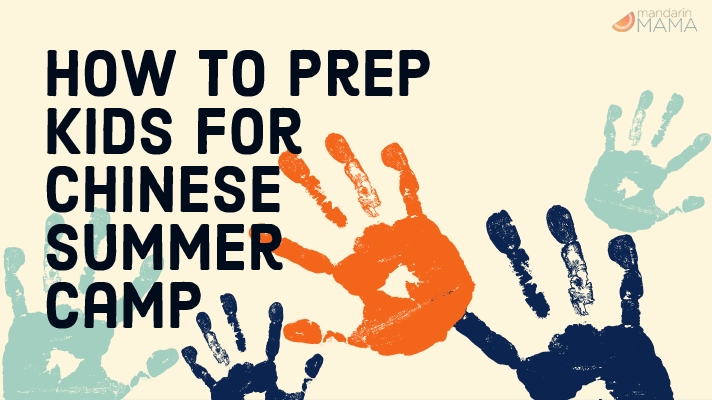
This post was sponsored by Sagebooks. All opinions are mine and mine alone.
Before I continue, DO NOT ASK ME WHERE I SEND MY KIDS TO CAMP.
I will not tell you. In fact, I will not acknowledge (and likely delete) all such queries. If you think it’s a good idea to inform the internet where your children attend summer camps, you do you. I, however, do not.
Alright! With that preliminary out of the way, today’s post is focused primarily on what you can do to help your children have a fun experience at a Chinese summer camp. (Because I only have experience with Taiwanese based camps, some of the advice may not be pertinent to ones in China.)
For all the posts focused on Taiwan based camps, please check out this page.
1) Decide your purpose for the camp.
Yes, yes. All of us want our children to improve in their Chinese – but HOW? Do you want your kids to learn cultural stuff? Learn how to speak Chinese? Learn how to read and/or write Chinese? Learn something but in Chinese? Have fun but in Chinese?
Depending on your answers, (as well as a realistic assessment of your kid’s Chinese abilities), the type of camp you choose will change. There are camps geared specifically for overseas children as well as camps for locals. The level of Chinese and expectations will be markedly different depending on who the camp is designed for.
2) Make sure your kid can communicate.
Although the entire point of going to Taiwan or China for camp is to improve your child’s Chinese, it’s very important that your child can communicate to and be understood by at least one person in charge at the camp. First, for obvious safety reasons (eg: medical, allergy, social, emergency situations), it is literally vital to your child’s health and well-being.
Second, even as an adult, it’s incredibly isolating to be thrust into a foreign country, surrounded by a language you vaguely understand and perhaps cannot speak well. It must be even more so for a child – especially if they are not old enough to comprehend what is going on.
Please take this into consideration when you are deciding between camps geared towards overseas or local children.
If your child can barely understand or speak Chinese, a local camp is probably not the best idea. Not only is the local camp likely not equipped to accommodate your child (and why should they be?), but it also disrupts their classes and your kid likely won’t be able to learn much anyway because they cannot understand what is being said.
If your child is pretty fluent in Chinese, make sure they can express any medical concerns in Chinese or know how to ask for help from a teacher. Even if they do know how to say such phrases, a little practice never hurts. It usually builds confidence.
3) Give Your Child Appropriate Expectations
Take the time to explain to your child what they can expect from the class. Read the class description together and explain any terms they might not understand. (And if you don’t mind, you can even go through all the possible camp descriptions and see which ones they prefer.) Give them an example of the planned schedules, show them pictures or videos of previous classes, and tell them about the provided lunches. If you know previous campers or friends who have done the program before, find out their experiences.
4) Prepare vocabulary for subject matter beforehand
If the classes are geared towards local kids, the teachers may already expect their classes to be familiar with these terms and not pause to explain or define it. Even if your child is a relatively fluent speaker, you may want to teach any specialized terms or vocabulary they might need for the class itself. You can use Chinese videos on the topic, flashcards, or books that explain some of the concepts ahead of time.
5) Provide a comfort item
Many of the camps require kids to bring along lunch eating utensils (eg: bowls, chopsticks) for their provided meals as well as basic school supplies. If your child is somewhat anxious, you can have them choose out a special item or bring a comfort item they can hold or touch during class. Just make sure to either have multiple versions or remind your child that if they bring it to class, they also have to be careful not to lose it!
6) Make a buddy (for the child)
If possible, either arrange for a friend to take the camp with your child or try and make friends with a kid in the camp. Things are usually more tolerable if there is a friendly face in the crowd! You may need to provide (and rehearse) common ice breaking phrases in Chinese to your child. You may also want to teach them how to say the things they like in Chinese (eg: Chinese names of Pokemon characters; Chinese names of movies or foods and hobbies).
This may also require work on your part as the parent in order to make outside playdates with the parents of the kids your child may befriend. (For those of us who are either shy or despise people in general, this takes a LOT of effort! Push through for the benefit of your kid.)
7) Make a buddy for yourself.
Again, this requires effort and talking to strangers, so I totally get the internal groan I’m hearing across the internet. HOWEVER. This is useful because you have someone to with whom to discuss the class, the teachers, and ask questions. Personally, I prefer to befriend people who are better at Chinese-ing, but that’s because I’m super lazy and would prefer not to be the better at Chinese-ing person in the relationship.
Also, because if you’re going to Taiwan or China by yourself and don’t have family or any other friends there, it can become very lonely and isolating. Add culture shock on top of that and it’s even more lonely. Make friends. At the very least, you can order more dishes at lunch because you can eat family style.
Generally, I am too lazy to follow any of the above advice, but just because I don’t do them doesn’t mean that they’re not good things to do.
In fact, I did make new friends in Taiwan despite not needing to because I already had friends there – and we have kept in touch throughout the years and they’re on my Christmas card list and everything. Plus, now I have more people with whom to eat! If that’s not a win, I don’t know what is.






